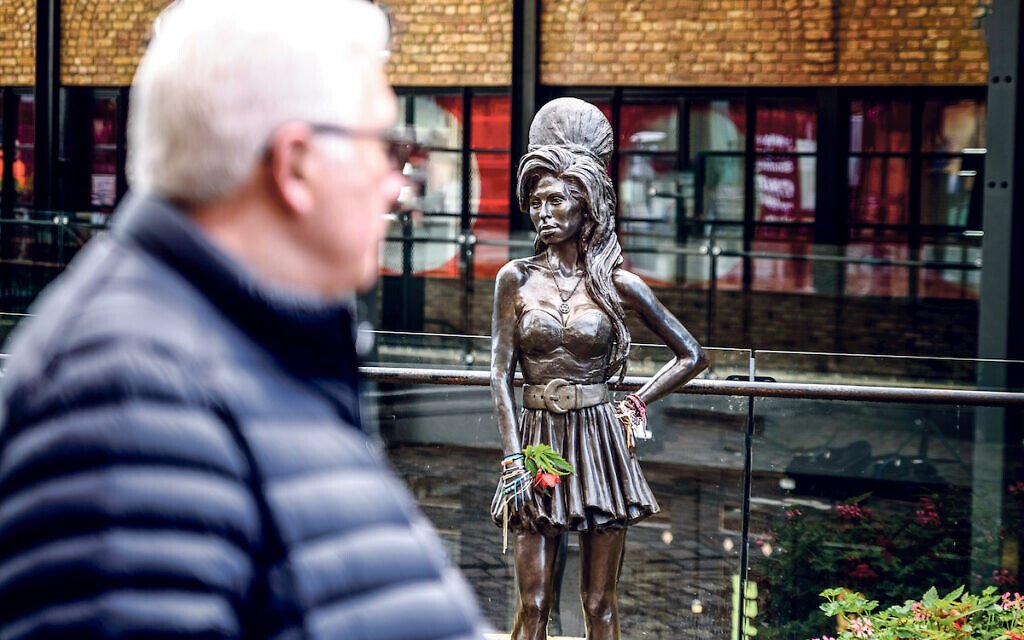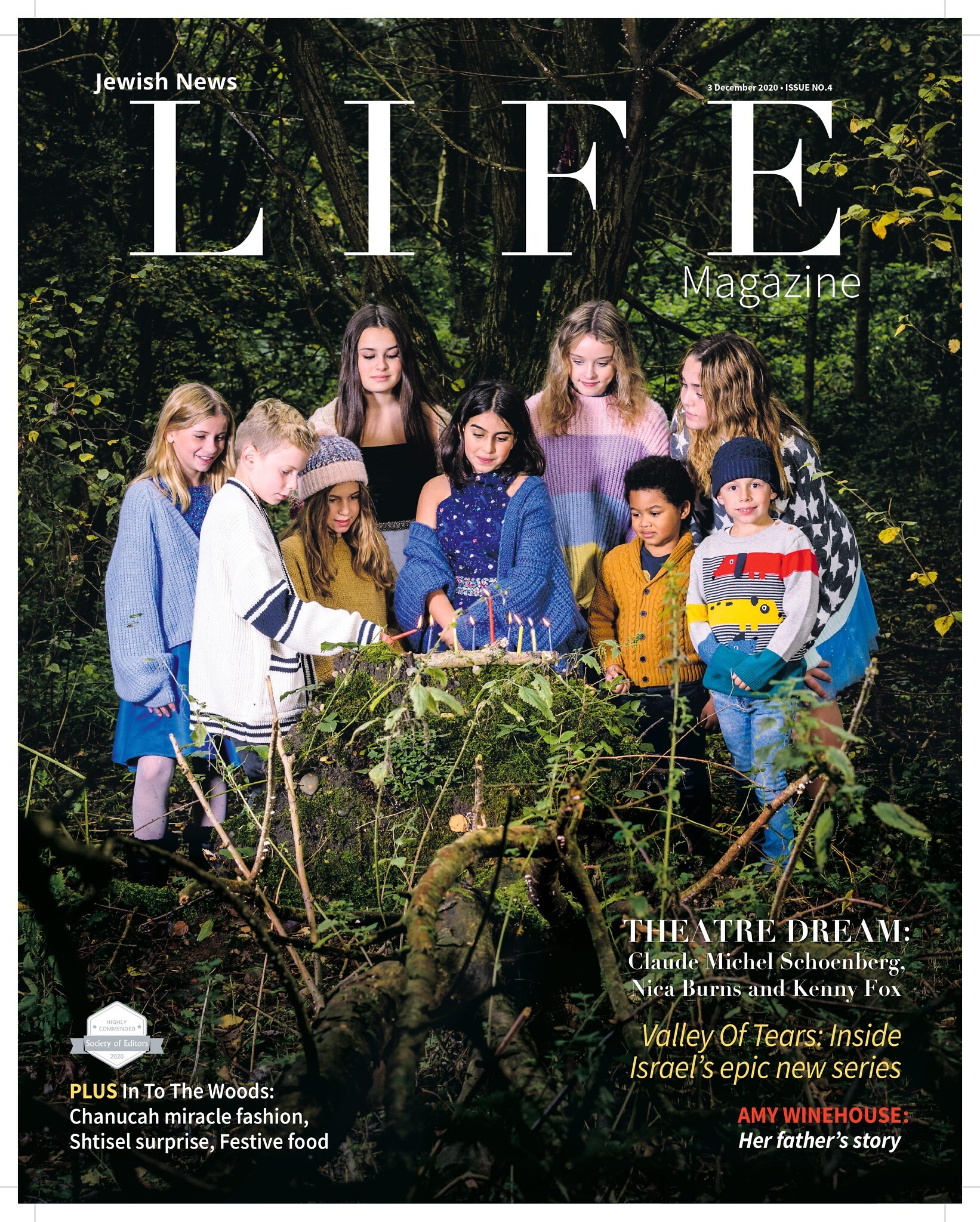A father’s story – Mitch Winehouse: ‘No one exploited my daughter’
She was a supreme talent who died too young. He is her adoring dad. Mitch Winehouse shares memories and movie plans with Brigit Grant on a walk in Amy’s manor
Ten years.” Mitch Winehouse tenses at the number, but a father who has been grieving for his daughter since 23 July 2011 doesn’t need reminding about the anniversary of her death.
Mitch knows her devoted fans will have the date marked in their 2021 diaries and that radio stations will play her songs on a loop, as they did when Amy died of alcohol poisoning, aged 27, in her Camden home on a summer afternoon. Camden was always her stomping ground and got a shout-out – “Camden Town ain’t burning down”– when she won a record five Grammys for her album Back To Black in 2008. It’s a golden memory for Mitch, who celebrated with Amy then and now stands beside her, immortalised in bronze, a Magen David around her neck.
Loss has been cruel for the bereaved during lockdown and continues to be, with people sitting streamed shivas alone. This was not the case when Amy died as distraught family and close friends stayed together for a month – “Mark Ronson never left our side,” says Mitch of her music producer. But the isolation of lockdown, with too many empty hours to think, has also been hard for those who loved and lost years ago.
Get The Jewish News Daily Edition by email and never miss our top stories Free Sign Up
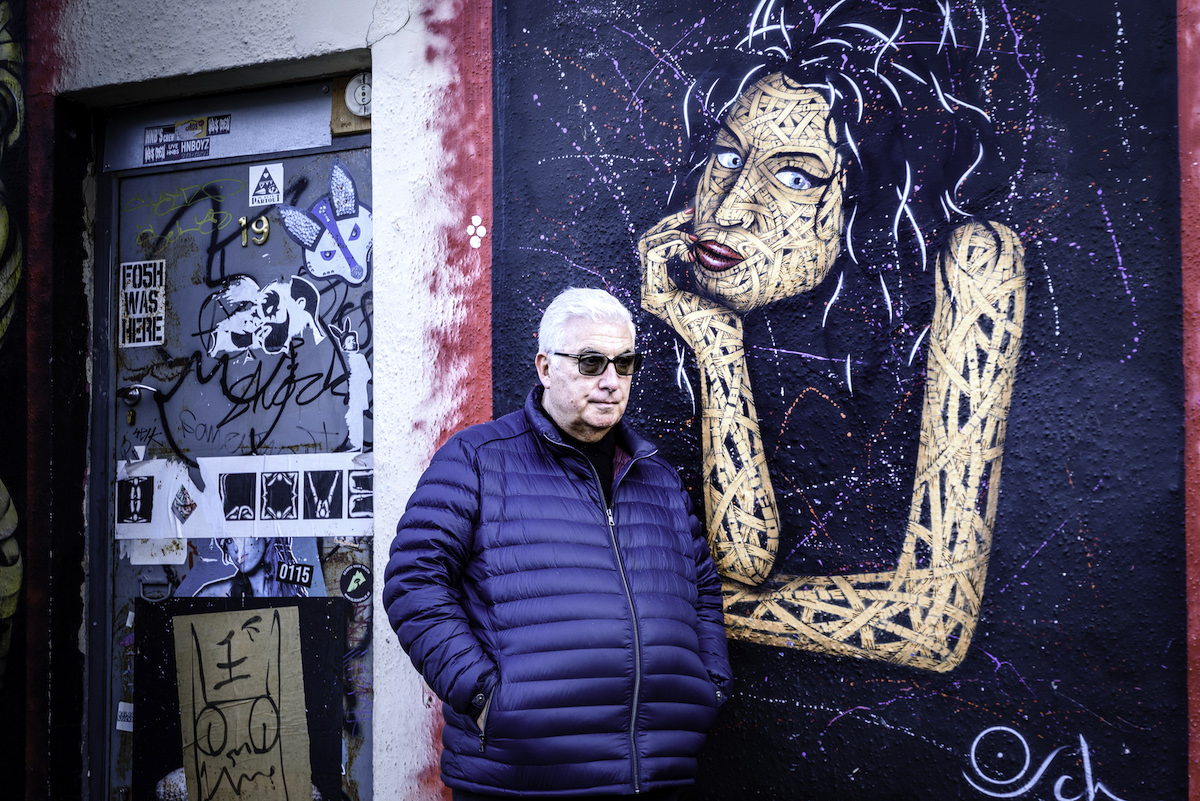
“In those first two weeks of March, I nearly lost my mind,” admits Mitch.
“I was going out driving at 3am. I was just shattered by it. One day I walked from Camden to the City, but saw no one. It was dreadful, like the aftermath of an atomic bomb.”
The bomb-ridden streets of the East End were Mitch’s playground growing up after the war, and he regaled Amy and her brother, Alex, with his tales. “Kids finding detonator caps and jumping off collapsed buildings – not that it was all fun, as some were killed. If you went out to play, your mum and dad didn’t know if you’d come home at night.”
In later years, when Mitch became a cabbie, he often took his children to the East End – “Amy loved it” – and so does he, as the area was once filled with uncles, aunts and his dad at work in the barber shop on Commercial Street. Mitch still has affection for Camden too, occasionally staying at Amy’s old flat and always energised by the place where reminiscing is his only option.
“She lived upstairs there,” he says, stopping in front of the shop, Blue Skin. “She worked downstairs, where they sold fetish wear, but whenever I dropped by, she was asleep in the store room.”
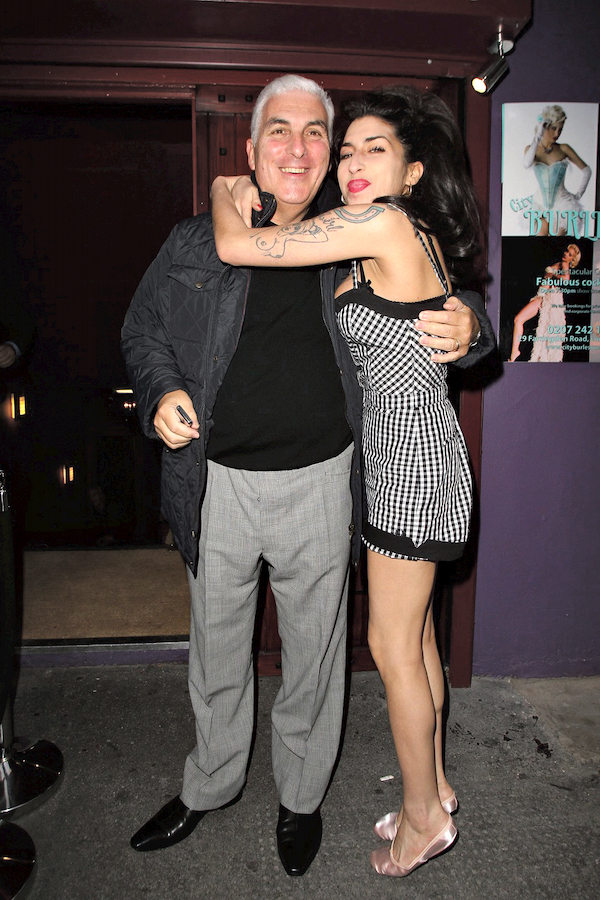
A few yards on, and Mitch points at a paving stone inset with a dedicated plaque. “Quite an honour,” he mumbles, moving on to find the Amy murals created in 2017 for the Jewish Museum’s exhibition. Sadly, Camden’s eclecticism – which Amy adored – also explains the repainting of the most beautiful murals with second-rate graffiti. But Mitch, undettered, locates the remaining few, lingering in front of the shutters in silence.
“Amy wasn’t a lockdown kind of girl,” says Mitch. “She would have been out feeding the homeless. People really didn’t know the kind of girl she was or that she constantly helped people. She even made sandwiches for the paparazzi standing outside her house.”
A Jewish Care lanyard inside Mitch’s jacket reveals from where her good nature stemmed, as he has been delivering meals for the charity since March.
“The NHS never called back when I offered, so I went to Jewish Care and, honestly, the volunteering helps me more than it helps them. I don’t know how I would have survived lockdown without it.”
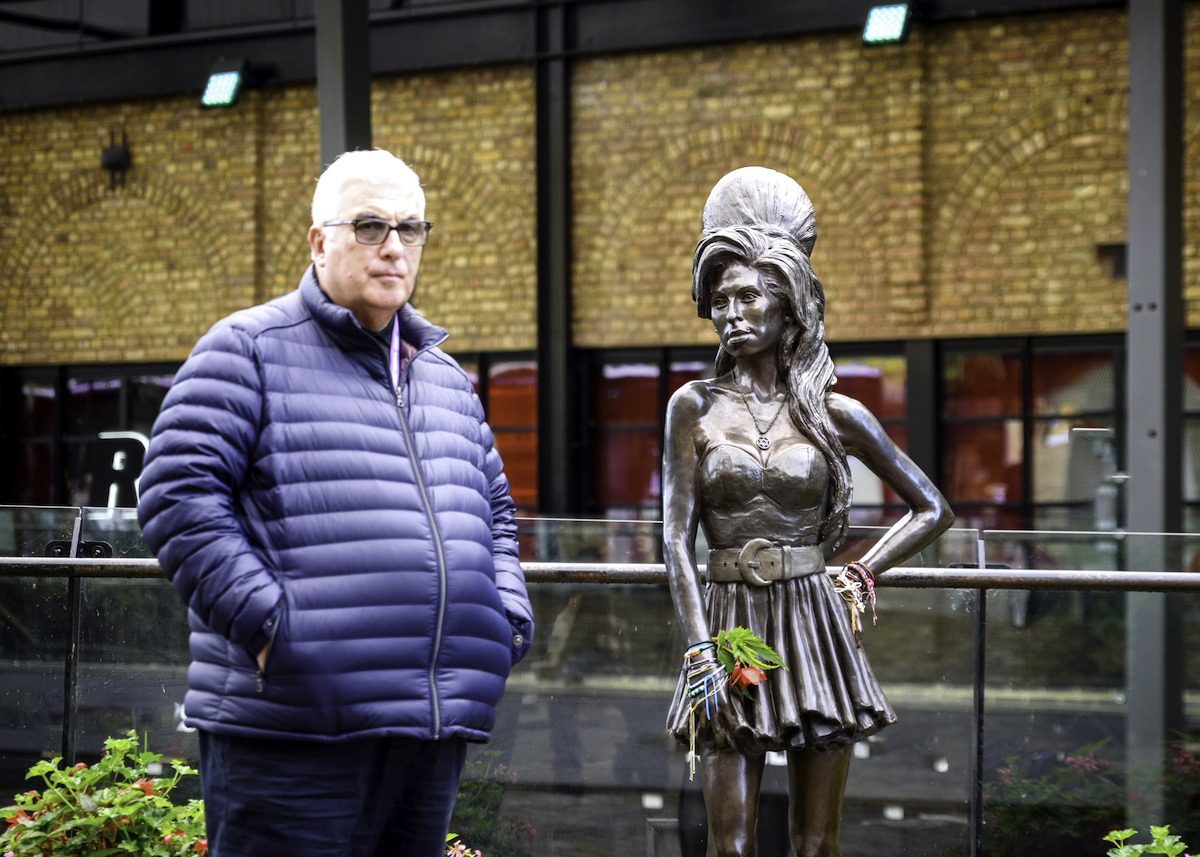
That morning he had been on his Chigwell run (he has a home there) dropping food to “lovely old girls”. Some of them remember his late mother, Cynthia, who was honoured as a pin-up girl tattoo on Amy’s right shoulder.
Cynthia died in 2006, but still appears in Mitch’s dreams, as has Amy, scolding him for pretending to like her new hair colour. “Remember when she dyed it yellow? She knew I hated it,” says Mitch, who hoped she would tell him what happened on the the day she died. Even in sleep that question plagues him and his belief in spiritualism has him seeking answers there.
Cynthia held séances, so he knows the score but mediums have brought no solace. “I lost my father when I was 16,” he says. “It feels like I’ve been sitting shiva all my life.” And for all the anguish over Amy’s death, nothing prepared him for the impact of Asif Kapadia’s 2015 documentary, Amy, which accused him of bad parenting and exploiting his daughter.
Mitch refutes it all, insisting: “No one exploited her, not me and not her record company.
Amy wiped the floor with them and didn’t care about turning up five hours late for a meeting with Universal Music’s chairman, Lucian Grainge. She knew what she was doing and also insisted she could handle the packed tour dates.”
She would have been out feeding the homeless. People really didn’t know the kind of girl she was or that she constantly helped people. She even made sandwiches for the paparazzi standing outside her house
That Amy could be a diva was part of her appeal, but shaking off the film’s claims against him is hard. A few weeks ago on American TV he was asked about his role in sending Amy to rehab.
“I was there to talk about the [Amy Winehouse] Foundation’s alliance with Sno Babies, a film about opioid addiction, and the second question was about letting down Amy. How many times do I have to say I sent her there? Not just once, six or seven times. She wouldn’t stay. Amy wasn’t a child and it never occurs to people I’m a grieving father. That horrible film is not true.”
Mitch plans to be vindicated in a bio-pic about Amy slated for release in 2022. The script has been written with input from Mitch, but the real challenge will be finding an actor to play Amy among thousands desperate for the role. Mitch believes the part will go to an unknown who will be catapulted to stardom. But tiny as Amy was in ballet pumps, her’s are big boots to fill and the expressive contralto voice is only the start.
No one exploited her, not me and not her record company. Amy wiped the floor with them and didn’t care about turning up five hours late for a meeting with Universal Music’s chairman, Lucian Grainge
“She learnt to read music in three days, play the trumpet in a week and designed six seasons of her Fred Perry collection in one sitting.” Mitch reels off her talents, but is honest about her real interests.
“I don’t want to name drop, but I was talking to Carole King, who still does six hours on the piano every day.
“Amy wouldn’t have done that in a million years. The first thing she’d do was see what her friends were doing and then whatever boy she was seeing. Music was important to her, but not as much as friends and family, which may come as a bit of a blow to her fans, but ultimately that shows how brilliant she was. She never worked on it – if she had, she would have been like George Gershwin.”
Of course, Mitch is a singer, too, but not on the back of Amy’s success, as some suggest, since he was performing years before he started a double-glazing business and did The Knowledge. The pandemic put pay to the release of his new album, but there are gigs lined up in the big music halls of Austria, Germany and Switzerland when he can get there.
He is also focused on the Foundation’s work supporting thousands of vulnerable and disadvantaged young people in the UK, St Lucia and Jamaica. The charity has been receiving more donations since the
virus outbreak.
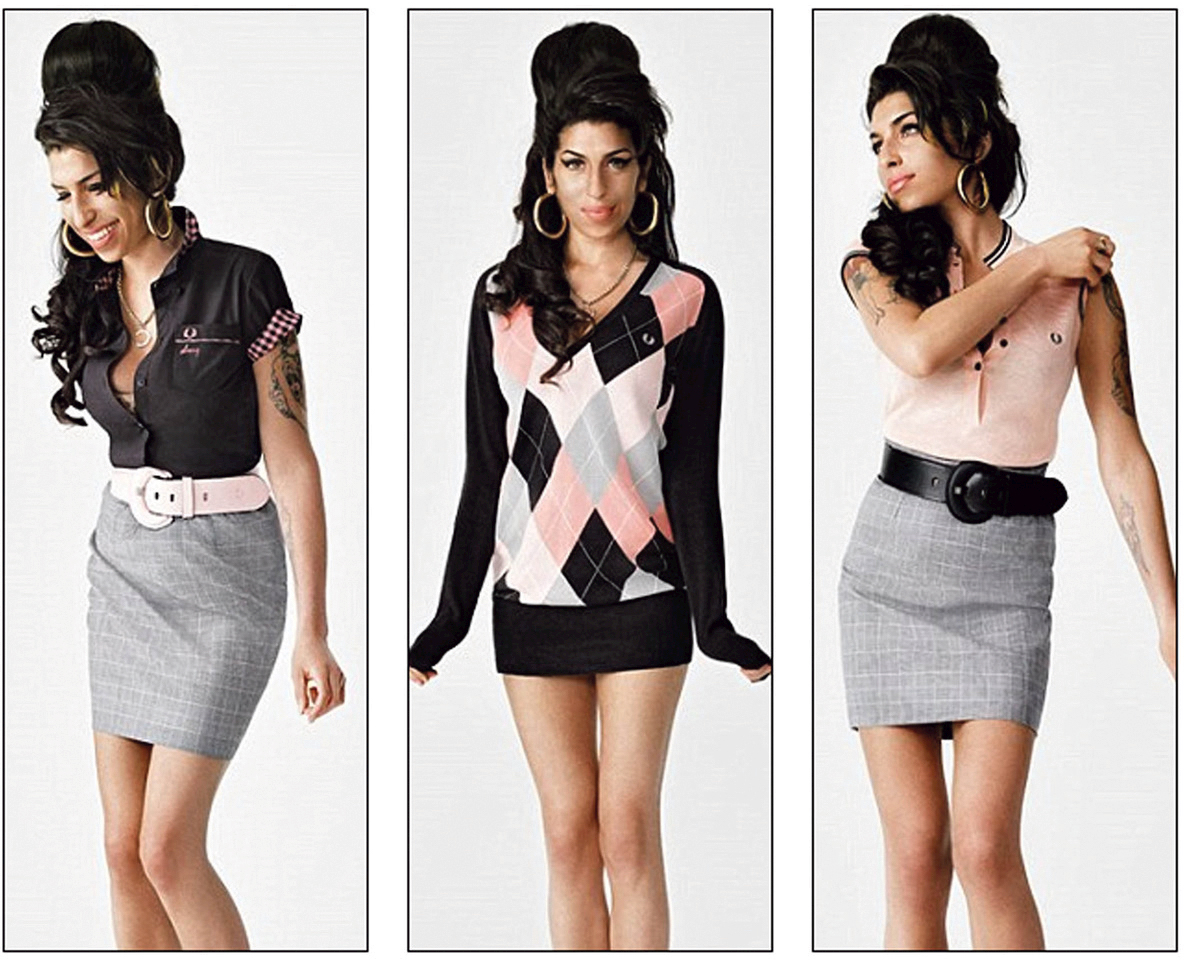
“Amy started the Foundation without even knowing it,” says Mitch who, in normal times, regularly visits its Teen Jazz Programme in Brooklyn, where Amy’s mother Janis was born.
Janis is also committed to the project, alongside Tony Bennett and his son Danny, whom the family met when Amy recorded the duet, Body And Soul with the veteran singer. A year after she died, the song won a Grammy and it remains one of Bennett’s favourites.
With the tragic 10th anniversary looming, all recollections and keepsakes now have even greater significance: An 11-year-old Amy missing the high notes in her stage school’s production of Annie.The letter from Sylvia Young’s offering her a full scholarship.
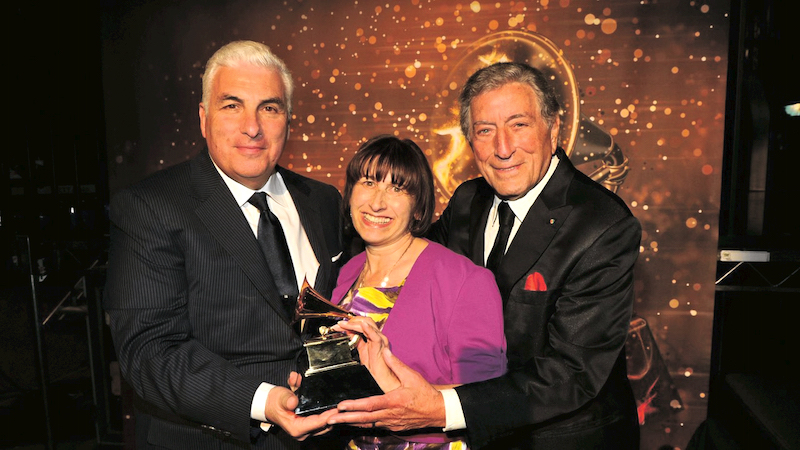
“She applied without my consent,” says Mitch. “I refused to let her apply because she was too naughty.”
And then there’s the footage of Amy shouting: “I’m just glad my mum and dad are here,” at the Grammys, which should influence Mitch’s detractors, but he isn’t convinced.
“What’s the best story? That Amy had a loving family who nurtured her. Or that everyone deserted her? That’s a much better story.”
Camden Town will have a starring role in the biopic, but it probably won’t feature the grieving father who regularly sits outside the house where his daughter died. That is Mitch’s story.

Thank you for helping to make Jewish News the leading source of news and opinion for the UK Jewish community. Today we're asking for your invaluable help to continue putting our community first in everything we do.
For as little as £5 a month you can help sustain the vital work we do in celebrating and standing up for Jewish life in Britain.
Jewish News holds our community together and keeps us connected. Like a synagogue, it’s where people turn to feel part of something bigger. It also proudly shows the rest of Britain the vibrancy and rich culture of modern Jewish life.
You can make a quick and easy one-off or monthly contribution of £5, £10, £20 or any other sum you’re comfortable with.
100% of your donation will help us continue celebrating our community, in all its dynamic diversity...
Engaging
Being a community platform means so much more than producing a newspaper and website. One of our proudest roles is media partnering with our invaluable charities to amplify the outstanding work they do to help us all.
Celebrating
There’s no shortage of oys in the world but Jewish News takes every opportunity to celebrate the joys too, through projects like Night of Heroes, 40 Under 40 and other compelling countdowns that make the community kvell with pride.
Pioneering
In the first collaboration between media outlets from different faiths, Jewish News worked with British Muslim TV and Church Times to produce a list of young activists leading the way on interfaith understanding.
Campaigning
Royal Mail issued a stamp honouring Holocaust hero Sir Nicholas Winton after a Jewish News campaign attracted more than 100,000 backers. Jewish Newsalso produces special editions of the paper highlighting pressing issues including mental health and Holocaust remembrance.
Easy access
In an age when news is readily accessible, Jewish News provides high-quality content free online and offline, removing any financial barriers to connecting people.
Voice of our community to wider society
The Jewish News team regularly appears on TV, radio and on the pages of the national press to comment on stories about the Jewish community. Easy access to the paper on the streets of London also means Jewish News provides an invaluable window into the community for the country at large.
We hope you agree all this is worth preserving.
-
By Laurent Vaughan - Senior Associate (Bishop & Sewell Solicitors)
-
By Laurent Vaughan - Senior Associate (Bishop & Sewell Solicitors)
-
By Laurent Vaughan - Senior Associate (Bishop & Sewell Solicitors)
-
By Laurent Vaughan - Senior Associate (Bishop & Sewell Solicitors)


